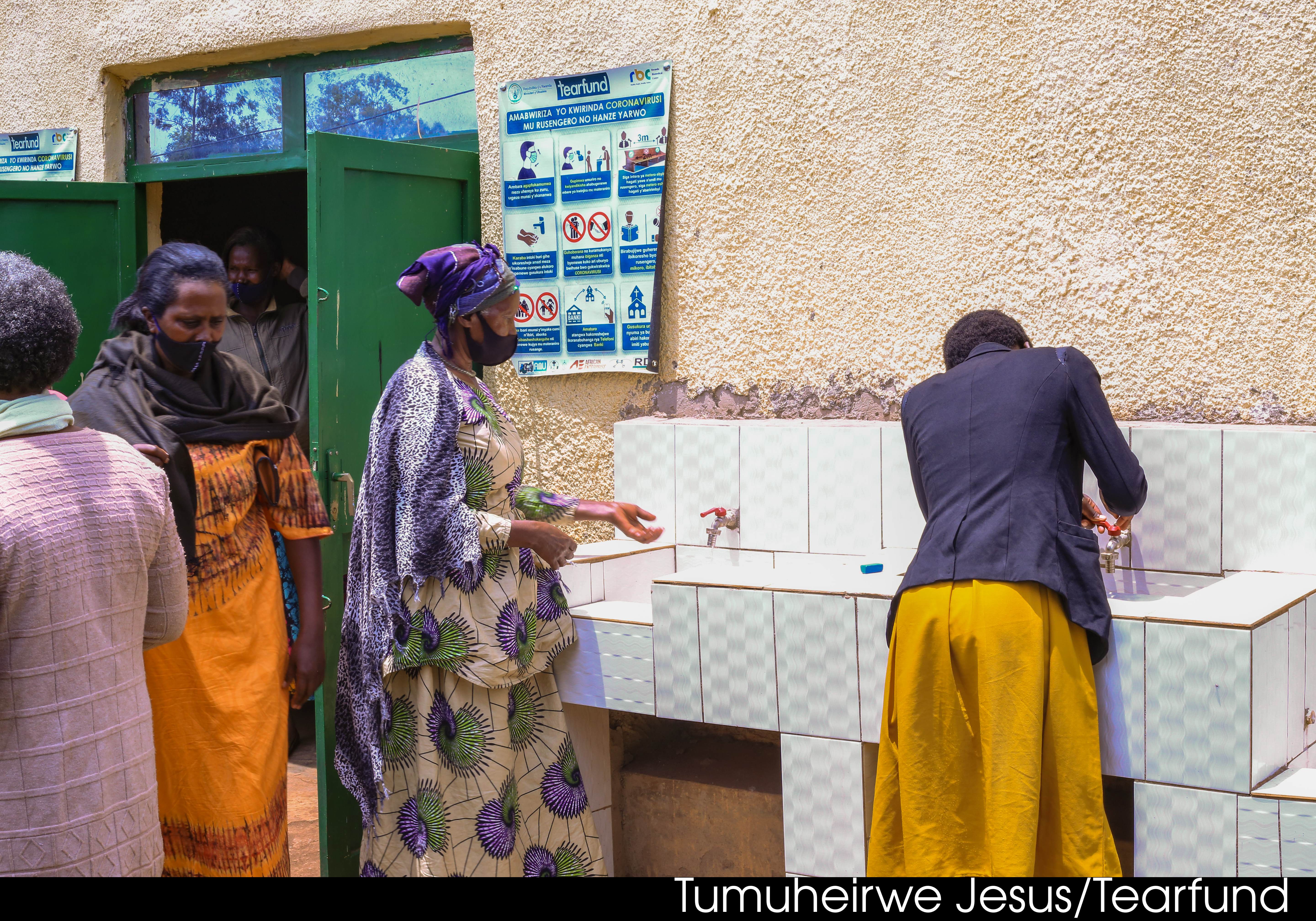
Toilet Twinning
Integrated sustainable water, sanitation and livelihoods
Improve access to healthcare
Reduce hunger and poverty, and improve livelihoods
Africa and Middle East
2022-2023
UN Sustainable Development Goals






The issue
Uganda is one of the world’s most biodiverse countries. But in recent years climate change has led to adverse weather including long drawn-out dry spells, devastating floods and landslides – causing a loss of homes, crops, and businesses.
Most natural disasters that occur in Uganda are related to extreme weather. Uganda’s impoverished people are on the frontline of what the UN Secretary General described in September 2020 as ‘the climate emergency’.
New findings show that average temperatures in Uganda have increased by as much as 1.4 degrees since the 1960s, compared to an average of 0.5 degrees in the wider region over the last century.
The last four years were the hottest on record. According to the World Bank, 70 percent of the population are employed in low productivity agriculture, which is heavily dependent on the increasingly unfavourable climate.
The consequences are already being felt. Between 2012 and 2017, around 10 million more Ugandans were living in poverty – with the rate increasing from 19 to 27 percent of the population.
Ugandan smallholder farmers lack farming skills, handling techniques and access to services such as credit and insurance. Storage facilities are often inadequate to protect harvested crops from pests, moisture and mould which results in losses of up to 30 per cent. In the northern and eastern regions, rain scarcity can exacerbate food insecurity, forcing families to sell off their assets, take their children out of school or resort to environmentally damaging practices to secure food.
Toilet Twinning
Like all the greatest ideas, Toilet Twinning was born in the bathroom.
It was in fact a concept originally conceived in 2008 by Cord, a peace and reconciliation NGO. At that time, Cord had an ‘alternative gift’ catalogue and the wife of one of Cord’s managers sponsored a bog in Burundi as a Christmas present to her husband. A picture of a latrine had a sticky note attached to it, bearing the words: ‘I’ve twinned your loo.’
After a few months of developing and tweaking the concept, Cord launched Toilet Twinning. The initial target – to twin 500 toilets in Burundi – was reached in just three months. On a roll, Cord joined forces with Tearfund in 2010 to extend the number of countries where toilets could be twinned. Cord handed over the Toilet Twinning baton to Tearfund in 2015, enabling Cord to focus on its peace-building work. By then, Toilet Twinning had raised more than £2.3 million, and had twinned about 35,000 toilets in more than 40 countries.
Toilet Twinning funds and works with partners to provide clean water, basic sanitation, and hygiene education to help communities lift themselves out of poverty. By training and involving communities on new agriculture, climate adapted farming methods, water source maintenance and knowledge on hygiene and behaviour change, the charity aims to empower communities to be less reliant on external help and more self-sufficient.
By equipping participants with the knowledge, tools and experience, it hands over the power to the communities - creating a more sustainable and holistic model for community development.
Find out more about Toilet Twinning on their website.

The project
Croda Foundation has awarded a grant of £110,882 to Toilet Twinning to deliver a project that will support 4,350 poor or vulnerable Ugandan small-scale farmers by providing safe water for agricultural and domestic use in two northern districts (Alebtong and Otuke) and one eastern district (Kumi).
Ten broken water sources will be fixed and local communities will be trained on how to maintain them. The project will also offer training to local communities on the construction of hygienic latrines (such as sato pans and arbaloos) that are suitable for the conditions created by the local soil and high-water table.
As well as bringing significant health benefits through improved access to clean drinking water and good sanitation, the project’s integrated approach will also have benefits for agriculture, livelihoods and nutrition.
The clean water will also be used for farming, enabling the chosen communities to grow their own food. The project will introduce climate change adaptation techniques which will in turn increase crop production and productivity. To increase food production, new crops (including soybean for northern Uganda and groundnut for eastern Uganda) will be introduced as part of the project.
The areas of focus are among the poorest districts in the Lango Region. These communities face some of the most challenging circumstances with regards to water, sanitation and hygiene, along with difficult agricultural conditions that lead to poor livelihoods and nutrition.
In total the project hopes to impact the lives of 24,000 people, as family members and community members will benefit from the improved knowledge, increased crop production and increased resilience that result from the project.
In the longer term, the project will strengthen links between smallholding farmers and formal financial institutions - helping smallholders develop better market linkages.
Training on packaging and selling the new crops will be included too, enabling the farmers to not only link up with markets but also meet demand through good management, storage and preparation of crops. Other goals include increasing local farmers’ knowledge of agricultural techniques and equipping communities with the skills required to effectively maintain and manage water sources.
Impact
10 water sources repaired
24,000 people reached in wider communities
Croda Foundation, established in 2020, is an independent charitable company set up by FTSE 100 specialty chemicals company, Croda International Plc, and is registered in England and Wales (number: 1196455). The Foundation is solely funded by generous donations from Croda International Plc and led by an independent Board of Trustees.


